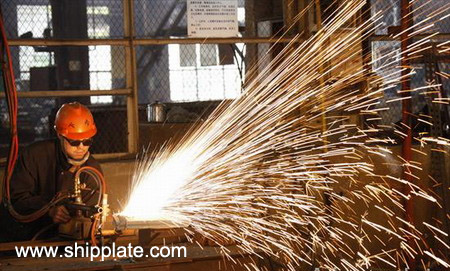| Home >> News |
Demand for steel to slow | | Edit:HanZi Click:3309 Time:2010-9-8 11:01:51 | Global steel demand growth will decelerate next year as China's real estate market weakens and consumption in Japan falls, the World Steel Association said.
Consumption growth will slow to 5.3 percent in 2011, from a forecast 13.1 percent gain this year, the association said on Monday in a statement released in Tokyo. China and Japan are respectively the world's biggest and second-largest steel producing nations.
 Slowing demand in China, where the government has introduced measures to dampen property speculation, led to 40 percent of Chinese mills being made idle or put on maintenance, the China Iron & Steel Association said in August. Slowing demand in China, where the government has introduced measures to dampen property speculation, led to 40 percent of Chinese mills being made idle or put on maintenance, the China Iron & Steel Association said in August.
Consumption in India, Central and South America will drive global growth, the association, whose members produce around 85 percent of the world's steel, said on Monday.
"The emerging economies such as India and Brazil will likely lead gains in demand while there are uncertainties over the outlook for Chinese demand," Yoku Ihara, an adviser at Retela Crea Securities Co in Tokyo, said before the demand outlook was released.
Consumption may reach a record 1.34 billion metric tons in 2011, said the association, which is holding its annual meeting in Tokyo this week.
"China's apparent steel use growth will slow considerably in the remaining part of this year due to the Chinese government's effort to cool the real estate sector and ongoing steel production control," the association said.
Chinese demand is likely to increase 3.5 percent next year, down from a projected 6.7 percent this year, the group said.
China curbed electricity supplies to steelmakers recently to reach energy efficiency targets and has also ordered companies to shut obsolete mills.
Steel demand in Japan will probably fall 1.4 percent next year after a recovery of 19.1 percent this year because of a tighter fiscal policy and a stronger yen, the association said.
"Construction activity in Japan is still in a prolonged slump, the cost of raw materials is climbing and the Japanese currency, the yen, continues to strengthen," said Eiji Hayashida, chairman of the Japan Iron and Steel Federation. | | [ Back ] [Print ] |
|
|
|
|


